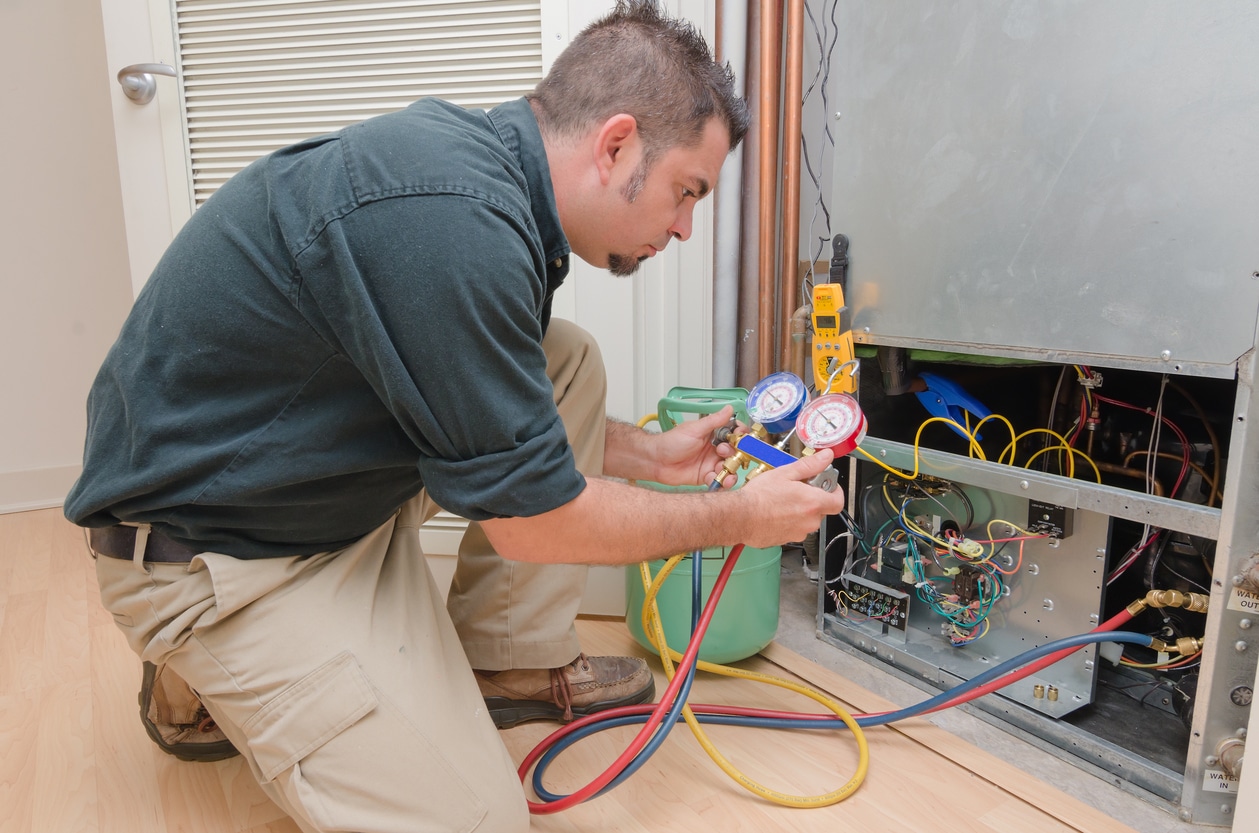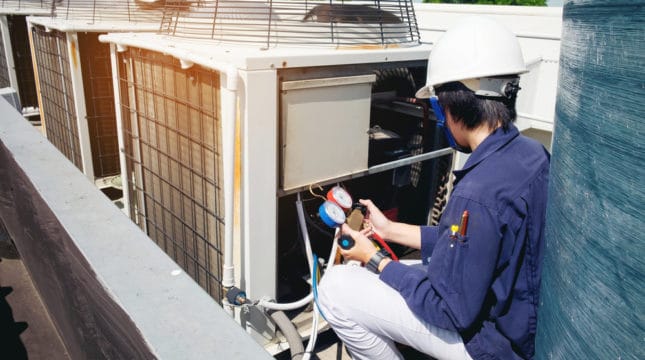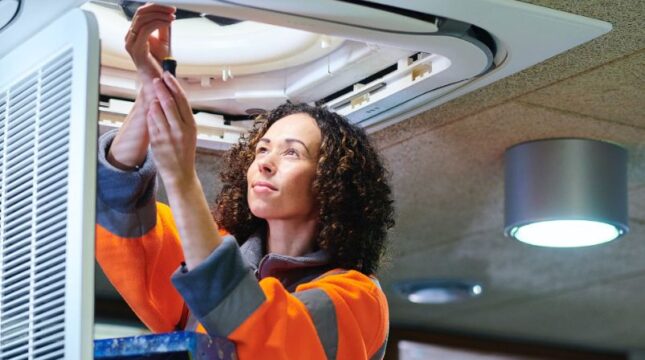Do you need a Massachusetts HVAC license?
HVAC contractors in Massachusetts only need a license if their work involves refrigerants. Any technician who performs refrigeration work with a capacity of 10 tons or more must have a Massachusetts refrigeration technician license, according to the state’s Division of Occupational Licensure. This type of work is typically limited to commercial areas and industrial sites.
How to get a Massachusetts HVAC license
The Division of Occupational Licensure Boards of Registration oversees the licensing of refrigeration technicians and contractors in Massachusetts.
To begin the licensing process, you must first submit a license application and pay a non-refundable processing fee of $150. Once your application is approved, the next step is to pass a written exam by answering at least 70% of the questions correctly.
You can renew your refrigeration license online through the Office of Public Safety and Inspection (OPSI) Licensing. Refrigeration technicians must renew their licenses every two years.
MA HVAC license requirements
If you want to become a refrigeration technician in Massachusetts, you’ll need to meet certain criteria.
1. Identification information and materials
To start, the basic eligibility criteria require you to be at least 18 years old. Along with your license application, you must provide:
- Your Social Security number
- A copy of your high school diploma or GED certificate
- A 2” x 2” passport-size photo
2. Proof of certifications
Your application for a refrigeration technician license requires you to submit two types of certifications:
- Certificate of Completion of Apprenticeship from the Division of Apprentice Standards
- Universal CFC Certification from the Environmental Protection Agency (EPA)
3. Documentation of work experience
Work experience documentation is crucial. The minimum requirement is 2,000 hours of work experience as a refrigeration apprentice, verified by an employer. However, you may need more hours depending on the amount of educational coursework you’ve completed.
4. Documentation of education
Your education in refrigeration also needs to be documented. Ensure your courses include practical shop-related work, refrigeration theory and code and Massachusetts electrical code training.
The less work experience you’ve acquired, the more education you’ll need to show and vice versa. Applicants must fulfill one of the following requirements for work experience and education:
| If you have this much work experience: | You’ll need this much refrigeration coursework: |
| 2,000 hours | 1,000 hours |
| 4,000 hours | 500 hours |
| 6,000 hours | 250 hours |
You can expect to spend at least three years completing the required hours, work experience and classroom training to get a Massachusetts HVAC license.
After submitting your application for a refrigeration license, you can expect to hear back from the Division of Professional Licensure Boards of Registration within four to eight weeks. You can schedule your exam as soon as you receive approval for your application.







